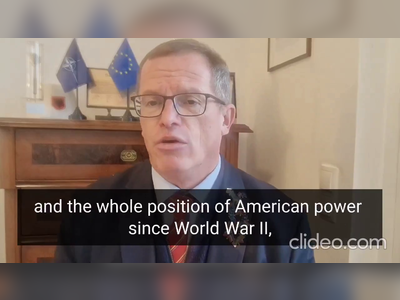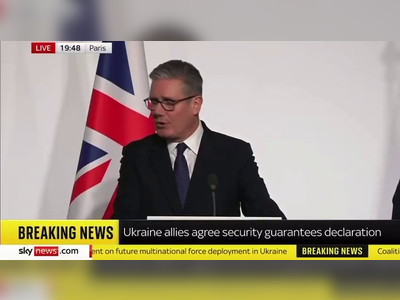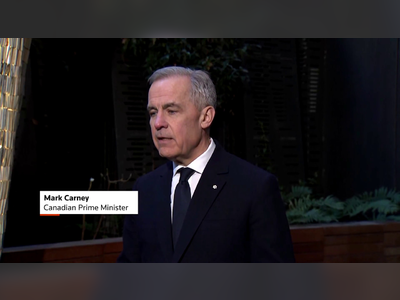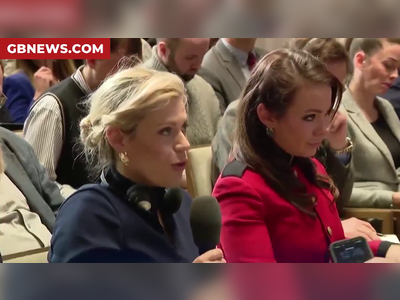Clemency for Pedophile Enabler: Katalin Novák Erred, but Political Responsibility Lies with Orban's Administration
Prime Minister Viktor Orbán recently announced a constitutional amendment due to a controversial clemency case that arose this past Thursday afternoon. This move indicates that the act of clemency granted by Katalin Novák to the deputy director of the Bicske child home has become extremely uncomfortable for the government as well. However, the Prime Minister avoided several key issues. As articulated in a study cited in more detail below by a former Minister of Justice, political responsibility in clemency cases lies with the endorsing government member.
After Katalin Novák's controversial decision, several opposition parties have indicated a desire to change the rules regarding presidential pardons. Last year, on the occasion of Pope Francis's visit to Hungary, the president granted clemency to several individuals, including the former deputy director of the Bicske child home, K. Endre. Between 2004 and 2016, the director of the institution harassed at least ten underage boys. His deputy, K. Endre, was sentenced to more than three years in prison for coercion after writing a false statement in the name of one of the children, which he attempted to get signed in the presence of the pedophile director.
Novák did not justify her decision to grant clemency, which was essentially discovered by accident after as a reader of 444 pointed out it appeared among court decisions. However, according to the reasoning of the Sándor Palace and Novák, the president is not obliged to justify her decisions or make them public.
* The DK, on the contrary, proposes that from now on, the president must justify her clemency decisions and publish these decisions in the Hungarian Gazette, taking into account the rules relating to the protection of personal data.
* Mi Hazánk believes "there is no place for clemency in the case of a crime where the victim has not yet reached the age of 18."
* Párbeszéd also suggests that the head of state has the obligation to justify every clemency decision. They argue that the justification must include the name of the perpetrator and the name of the crime where the accused was found guilty, as well as all the moral and political reasons considered by the president in granting clemency.
* Momentum also recommends making the reasons behind the president's clemency decisions public.
Viktor Orbán announced on Thursday afternoon that the government will initiate a constitutional amendment to prevent presidential clemency in future cases involving crimes against minors. With this statement, the Prime Minister implicitly labeled Novák's actions as a grave mistake, one that necessitates a constitutional amendment to prevent a recurrence. However, his announcement, essentially identical to Mi Hazánk's proposal, did not touch on issues regarding the publicity of clemency or the justification of the decisions.
We asked two experts to dissect the legal background and potential weaknesses of the current clemency rules and were curious to know whether they think changes are necessary, and if so, whether the proposals suggested by the opposition are adequate. (We only deal with the question of the transparency of clemency here; those interested in the types of clemency that exist in Hungarian law, as well as the most controversial clemency cases since the regime change, are recommended to read the article last year by our regular author, Dr. Zsuzsa Sándor, former criminal judge.)
OCCASIONAL JUSTIFICATION, OCCASIONAL PUBLIC DISCLOSURE
Opinions vary on how transparently presidents communicated their clemency decisions after 1990. There have been instances when the fact of a positive clemency decision was made public, and when justification was provided. Although these were rather exceptional cases, they nevertheless draw attention to the fact that,
while the president is indeed not obliged to justify decisions, nothing forbids her from providing justification or even publicly disclosing the names of those granted clemency.
Let's look at a few such cases:
* Ferenc Mádl granted clemency to Kitti Simek. After being repeatedly abused and sexually harassed by her father, she shot the sleeping man in the head at close range in August 2002, leading to his immediate death. At the time, the Presidential Office released a statement saying, "After the final court decision was made, new, compelling circumstances arose, and there were also changes in the personal and family circumstances already known and evaluated by the court, as the convict gave birth to a child last May." According to the statement, the president's decision was mostly influenced by the recommendation of the Minister of Justice.
* János Áder granted clemency to Ágnes Geréb in 2018, thus the obstetrician-gynecologist did not have to go to prison. The decision was made public by the president or his office. Geréb was, however, banned from practicing as a midwife, and Áder rejected her request for clemency from the disadvantages associated with a criminal record.
* Last year, Katalin Novák granted clemency to several defendants of the Hunnia case. The case of the terrorism-convicted György Budaházy, who received clemency, and the background of the decision, were discussed at length in an interview with our paper.
We asked the Palace of Sándor why Novák decides whether to make her clemency decisions public or not, but did not receive a response.
CONSTITUTIONAL LAWYER: NOVÁK MADE A MISTAKE, BUT THIS IS NOT HOW LAWS SHOULD BE AMENDED
Constitutional lawyer and political analyst Richard Szentpéteri Nagy believes it is important to see the process a clemency petition goes through, which indicates that the main character of the story is not only Katalin Novák but also the Minister of Justice in office at the time of the clemency, Judit Varga. Varga, who leads the Fidesz EP list, has not yet commented on the matter.
To recap the process: a clemency petition is initially submitted to the court, from which it is sent to the Ministry of Justice, where the department dealing with clemency decisions reviews it and advises for or against the clemency in its proposal. The Minister then presents this proposal to the office of the President of the Republic, where another set of qualified specialists examine the case, before forwarding the proposal for the President's signature. The latter sends back her signed decision to the Minister, who by signing it validates and finalizes the signature.
Therefore, the political responsibility in clemency cases lies with the Minister, the government, and ultimately Viktor Orbán, without a doubt. says Szentpéteri, who emphasizes that a significant number of requests are rejected by the system.
According to available data, the proportion of successful requests in the last twenty years has never reached 10 percent, not even 5 percent apart from last year.
Novák did not justify her decision to grant clemency, which was essentially discovered by accident after as a reader of 444 pointed out it appeared among court decisions. However, according to the reasoning of the Sándor Palace and Novák, the president is not obliged to justify her decisions or make them public.
* The DK, on the contrary, proposes that from now on, the president must justify her clemency decisions and publish these decisions in the Hungarian Gazette, taking into account the rules relating to the protection of personal data.
* Mi Hazánk believes "there is no place for clemency in the case of a crime where the victim has not yet reached the age of 18."
* Párbeszéd also suggests that the head of state has the obligation to justify every clemency decision. They argue that the justification must include the name of the perpetrator and the name of the crime where the accused was found guilty, as well as all the moral and political reasons considered by the president in granting clemency.
* Momentum also recommends making the reasons behind the president's clemency decisions public.
Viktor Orbán announced on Thursday afternoon that the government will initiate a constitutional amendment to prevent presidential clemency in future cases involving crimes against minors. With this statement, the Prime Minister implicitly labeled Novák's actions as a grave mistake, one that necessitates a constitutional amendment to prevent a recurrence. However, his announcement, essentially identical to Mi Hazánk's proposal, did not touch on issues regarding the publicity of clemency or the justification of the decisions.
We asked two experts to dissect the legal background and potential weaknesses of the current clemency rules and were curious to know whether they think changes are necessary, and if so, whether the proposals suggested by the opposition are adequate. (We only deal with the question of the transparency of clemency here; those interested in the types of clemency that exist in Hungarian law, as well as the most controversial clemency cases since the regime change, are recommended to read the article last year by our regular author, Dr. Zsuzsa Sándor, former criminal judge.)
OCCASIONAL JUSTIFICATION, OCCASIONAL PUBLIC DISCLOSURE
Opinions vary on how transparently presidents communicated their clemency decisions after 1990. There have been instances when the fact of a positive clemency decision was made public, and when justification was provided. Although these were rather exceptional cases, they nevertheless draw attention to the fact that,
while the president is indeed not obliged to justify decisions, nothing forbids her from providing justification or even publicly disclosing the names of those granted clemency.
Let's look at a few such cases:
* Ferenc Mádl granted clemency to Kitti Simek. After being repeatedly abused and sexually harassed by her father, she shot the sleeping man in the head at close range in August 2002, leading to his immediate death. At the time, the Presidential Office released a statement saying, "After the final court decision was made, new, compelling circumstances arose, and there were also changes in the personal and family circumstances already known and evaluated by the court, as the convict gave birth to a child last May." According to the statement, the president's decision was mostly influenced by the recommendation of the Minister of Justice.
* János Áder granted clemency to Ágnes Geréb in 2018, thus the obstetrician-gynecologist did not have to go to prison. The decision was made public by the president or his office. Geréb was, however, banned from practicing as a midwife, and Áder rejected her request for clemency from the disadvantages associated with a criminal record.
* Last year, Katalin Novák granted clemency to several defendants of the Hunnia case. The case of the terrorism-convicted György Budaházy, who received clemency, and the background of the decision, were discussed at length in an interview with our paper.
We asked the Palace of Sándor why Novák decides whether to make her clemency decisions public or not, but did not receive a response.
CONSTITUTIONAL LAWYER: NOVÁK MADE A MISTAKE, BUT THIS IS NOT HOW LAWS SHOULD BE AMENDED
Constitutional lawyer and political analyst Richard Szentpéteri Nagy believes it is important to see the process a clemency petition goes through, which indicates that the main character of the story is not only Katalin Novák but also the Minister of Justice in office at the time of the clemency, Judit Varga. Varga, who leads the Fidesz EP list, has not yet commented on the matter.
To recap the process: a clemency petition is initially submitted to the court, from which it is sent to the Ministry of Justice, where the department dealing with clemency decisions reviews it and advises for or against the clemency in its proposal. The Minister then presents this proposal to the office of the President of the Republic, where another set of qualified specialists examine the case, before forwarding the proposal for the President's signature. The latter sends back her signed decision to the Minister, who by signing it validates and finalizes the signature.
Therefore, the political responsibility in clemency cases lies with the Minister, the government, and ultimately Viktor Orbán, without a doubt. says Szentpéteri, who emphasizes that a significant number of requests are rejected by the system.
According to available data, the proportion of successful requests in the last twenty years has never reached 10 percent, not even 5 percent apart from last year.
AI Disclaimer: An advanced artificial intelligence (AI) system generated the content of this page on its own. This innovative technology conducts extensive research from a variety of reliable sources, performs rigorous fact-checking and verification, cleans up and balances biased or manipulated content, and presents a minimal factual summary that is just enough yet essential for you to function as an informed and educated citizen. Please keep in mind, however, that this system is an evolving technology, and as a result, the article may contain accidental inaccuracies or errors. We urge you to help us improve our site by reporting any inaccuracies you find using the "Contact Us" link at the bottom of this page. Your helpful feedback helps us improve our system and deliver more precise content. When you find an article of interest here, please look for the full and extensive coverage of this topic in traditional news sources, as they are written by professional journalists that we try to support, not replace. We appreciate your understanding and assistance.

















